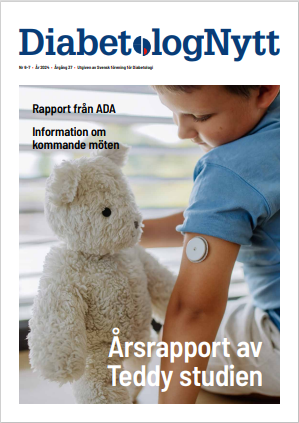|
Eli Lilly and Company announced positive top-line results of two additional Phase III AWARD trials for dulaglutide, an investigational, long-acting glucagon-like peptide 1 (GLP-1) receptor agonist being studied as a once-weekly treatment for type 2 diabetes.
Primary efficacy endpoints of non-inferiority to insulin glargine, as measured by the reduction of hemoglobin A1c (HbA1c) levels at the 1.5 mg dose, were met in two studies (AWARD-2 and AWARD-4). Having met the primary endpoints, superiority for HbA1c lowering was examined. The dulaglutide 1.5 mg dose demonstrated statistically superior reduction in HbA1c from baseline compared to insulin glargine at 52 weeks in patients with type 2 diabetes on metformin and glimeperide (AWARD-2). The dulaglutide 1.5 mg dose in combination with insulin lispro demonstrated statistically superior reduction in HbA1c from baseline compared to insulin glargine in combination with insulin lispro at 26 weeks (AWARD-4).
Across these two additional completed AWARD (Assessment of Weekly AdministRation of LY2189265 in Diabetes) studies, the most frequently reported adverse events were gastrointestinal-related. These adverse event findings are consistent with prior studies of dulaglutide.
In October 2012, Lilly announced positive top-line results of three other completed Phase III AWARD trials: AWARD-1, AWARD-3 and AWARD-5. Primary efficacy endpoints, as measured by reduction in HbA1c at the 1.5 mg dose, were met in all three. The five AWARD studies (1-5) will support registration filings of dulaglutide.
Lilly plans to present detailed data from the AWARD studies at scientific meetings in 2013 and 2014. The company expects to submit dulaglutide to regulatory authorities in 2013.
About the AWARD (Assessment of Weekly AdministRation of LY2189265 in Diabetes) studies:
- AWARD-1 was a randomized, 52-week, placebo-controlled comparison of the effects of dulaglutide and exenatide on glycemic control in patients with type 2 diabetes on metformin and pioglitazone. The primary objective of the study, conducted in 978 patients, was to evaluate whether dulaglutide 1.5mg, dosed once-weekly, is superior to placebo in reducing HbA1c from baseline at 26 weeks.
- AWARD-2 was a randomized, 78-week, open-label comparison of the effects of dulaglutide and insulin glargine on glycemic control in patients with type 2 diabetes on metformin and glimepiride. The primary objective of the study, conducted in 807 patients, was to evaluate whether dulaglutide 1.5 mg, dosed once-weekly, is non-inferior to insulin glargine in reducing HbA1c from baseline at 52 weeks. Superiority testing was performed since the statistical criterion for non-inferiority was satisfied.
- AWARD-3 was a randomized, 52-week, double-blind comparison of the effects of dulaglutide and metformin on glycemic control in patients with early type 2 diabetes. The primary objective of the study, conducted in 807 patients, was to evaluate whether dulaglutide 1.5 mg, dosed once-weekly, is non-inferior to metformin in reducing HbA1c from baseline at 26 weeks. Superiority testing was performed since the statistical criterion for non-inferiority was satisfied.
- AWARD-4 was a randomized, 52-week, open-label comparison of the effects of dulaglutide and insulin glargine, both in combination with insulin lispro, in patients with type 2 diabetes. The primary objective of the study, conducted in 884 patients, was to evaluate whether dulaglutide 1.5 mg, dosed once-weekly, in combination with insulin lispro, is non-inferior to insulin glargine in combination with insulin lispro, in reducing HbA1c from baseline at 26 weeks. Superiority testing was performed since the statistical criterion for non-inferiority was satisfied.
- AWARD-5 was a randomized, 104 week, double-blind, placebo-controlled comparison of the effects of dulaglutide and sitagliptin on glycemic control in patients with type 2 diabetes on metformin. The primary objective of the study, conducted in 1,098 patients, was to evaluate whether dulaglutide 1.5 mg, dosed once-weekly, is non-inferior to sitagliptin in reducing HbA1c from baseline at 52 weeks. Superiority testing was performed since the statistical criterion for non-inferiority was satisfied.
Eli Lilly Press Release 04-16-2013
Nyhetsinfo
www red DiabetologNytt
|





